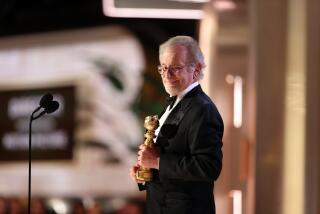Ousted Chairman of FHP Questions Direction of O.C. Firm at Meeting
- Share via
FOUNTAIN VALLEY — The founder and recently ousted chairman of FHP International Corp. criticized the company Thursday for boosting the pay of certain directors while slashing hundreds of jobs.
Robert Gumbiner raised his concerns during the company’s annual meeting in a polite, seven-minute exchange with FHP Chief Executive Westcott W. Price III. The former chairman also questioned the wisdom of the corporate restructuring that the company undertook shortly after ousting Gumbiner in mid-July.
The health maintenance company, originally set up by Gumbiner to serve members through its own hospitals and medical staff, is being converted to an organization that contracts out those services. Hundreds of jobs were eliminated, most of them administrative positions at the company’s Fountain Valley headquarters, and FHP put its hospitals up for sale and moved its doctors and dentists into a separate company.
Though Wall Street analysts have applauded the restructuring as a way to boost the company’s flagging profits and growth, Gumbiner predicted that shareholders will not get full value for the two hospitals FHP now aims to sell and the medical group it plans to spin off into a new company.
Price acknowledged that four of the company’s eight directors are getting paid thousands of dollars more a year for serving as chairmen of key committees. Also, shareholders Thursday approved additional stock options that will allow the four chairmen to purchase stock at a later date if it goes up.
Price said the compensation is in line with what other companies pay.
He explained that the committee chairmen are now getting paid more for extra work they are doing: Joseph F. Prevratil, executive committee chairman, gets $50,000 a year; Warner Heineman, audit committee chairman, $25,000; Robert W. Jamplis, quality assessment committee chairman, $10,000; and Richard M. Burdge Sr., compensation committee chairman, $10,000.
Price noted, however, that regular quarterly pay for directors in general dropped. Directors who were paid $10,000 every calendar quarter are now paid on a scale based on seniority. The pay ranges from $5,000 a quarter for first-year directors to a maximum of $10,000 for those who have served at least nine years.
Price also defended the company’s intention to sell the hospitals and spin off the medical group, saying that FHP is responding to competitive pressures from HMOs that offer their members a broad variety of providers.
Gumbiner, who still owns 150,000 shares, was ousted as FHP chairman at the board meeting in mid-June. His successor, Jack R. Anderson, is the former chairman of TakeCare Inc., an HMO that FHP acquired last year. Gumbiner became chairman emeritus but resigned from the board shortly afterward.
His appearance at the meeting Thursday, while enlivening an otherwise routine proceeding, clearly lacked the drama he had intended.
The day before the meeting, a public relations firm that he had hired sent out a release billing the event as an “annual meeting for one of the most talked-about and controversial industries today!”
However, the turnout of shareholders on Gumbiner’s side was meager. One FHP doctor complained of poor morale among the company’s medical staff. One FHP member complained about long wait times at the company’s medical facilities.
Two investors and an investment banker from Merrill Lynch & Co. stood up to praise management for taking steps to improve the company’s performance.
Afterward, Gumbiner grumbled that management had planted investors in the audience to make favorable comments. He also noted with disappointment that Anderson hadn’t stood at the podium with Price to answer questions and “take the heat.”
More to Read
Inside the business of entertainment
The Wide Shot brings you news, analysis and insights on everything from streaming wars to production — and what it all means for the future.
You may occasionally receive promotional content from the Los Angeles Times.










